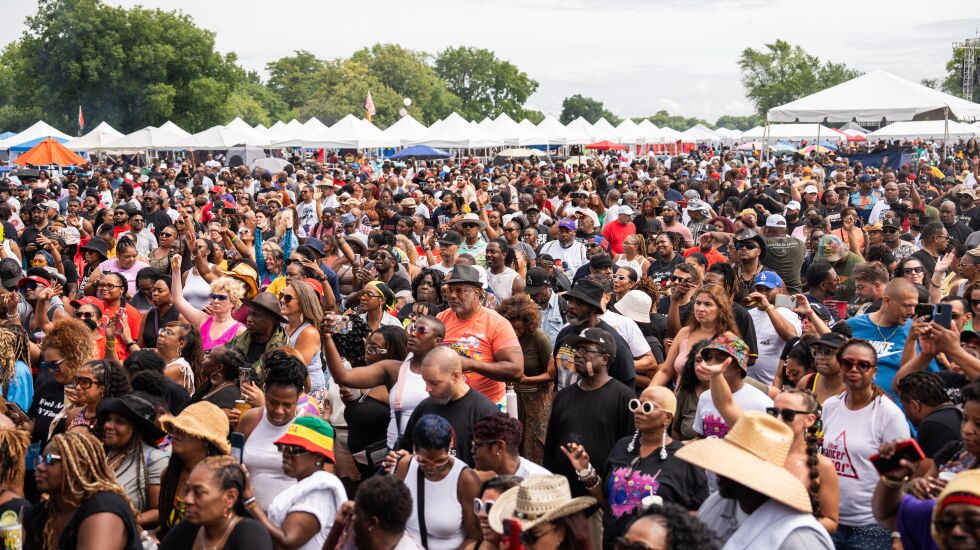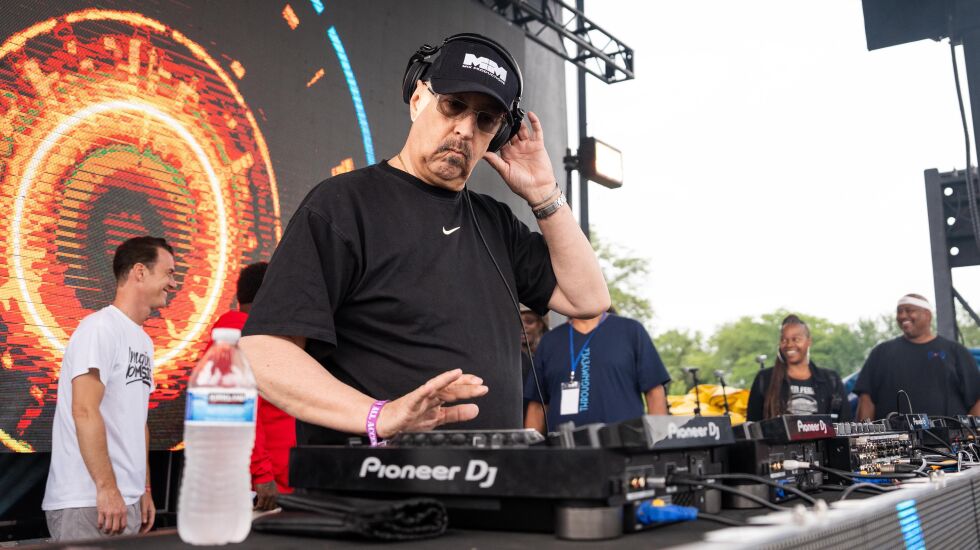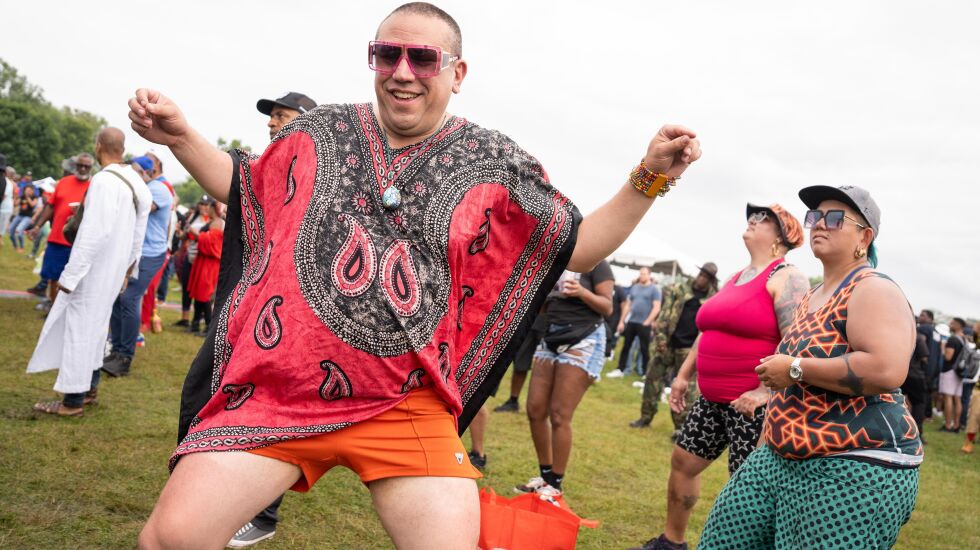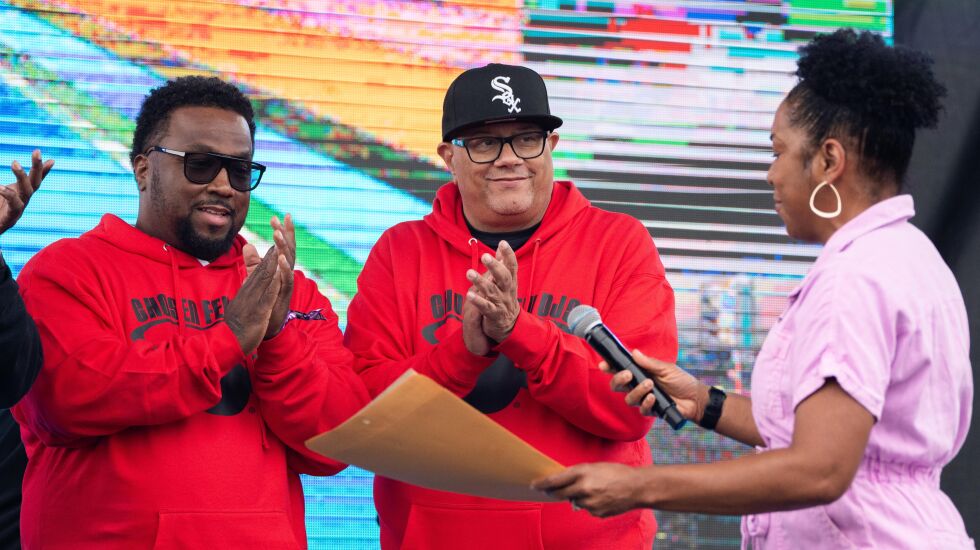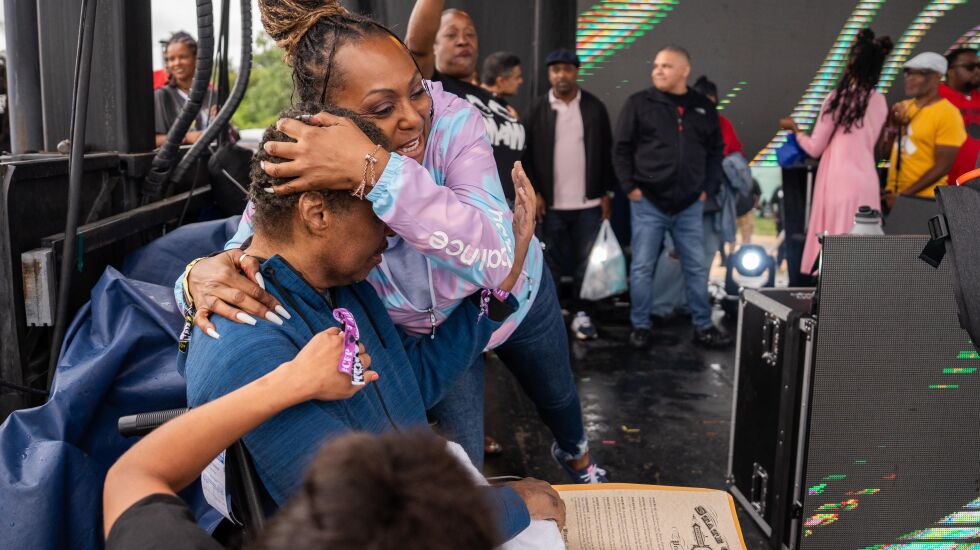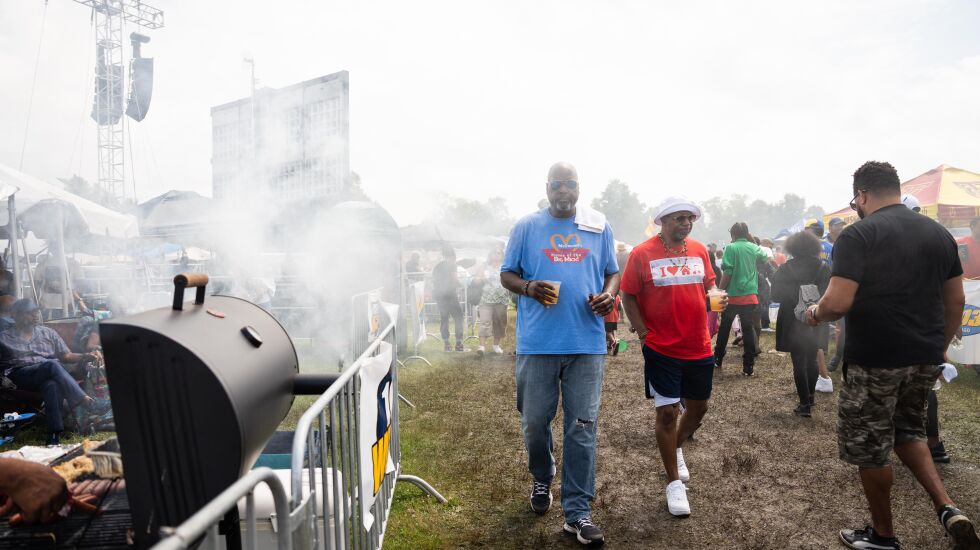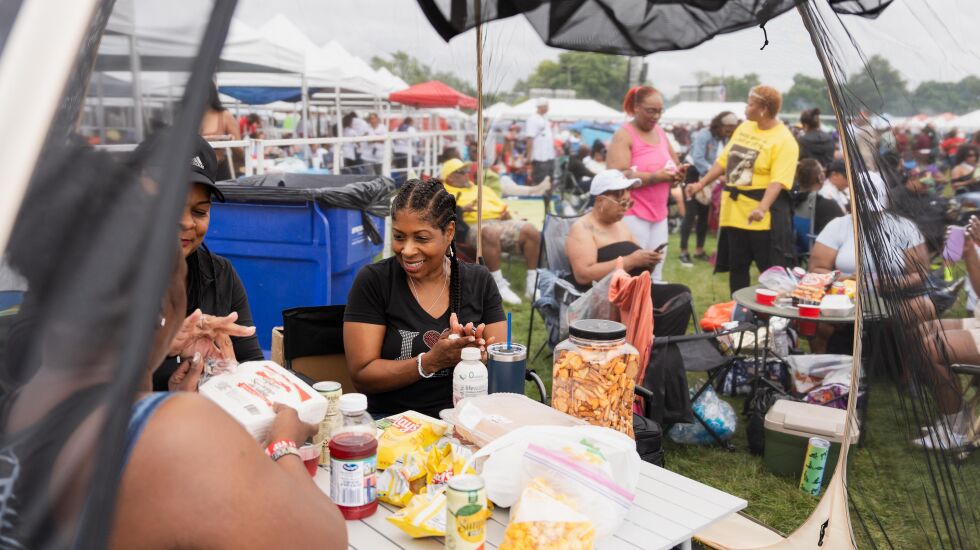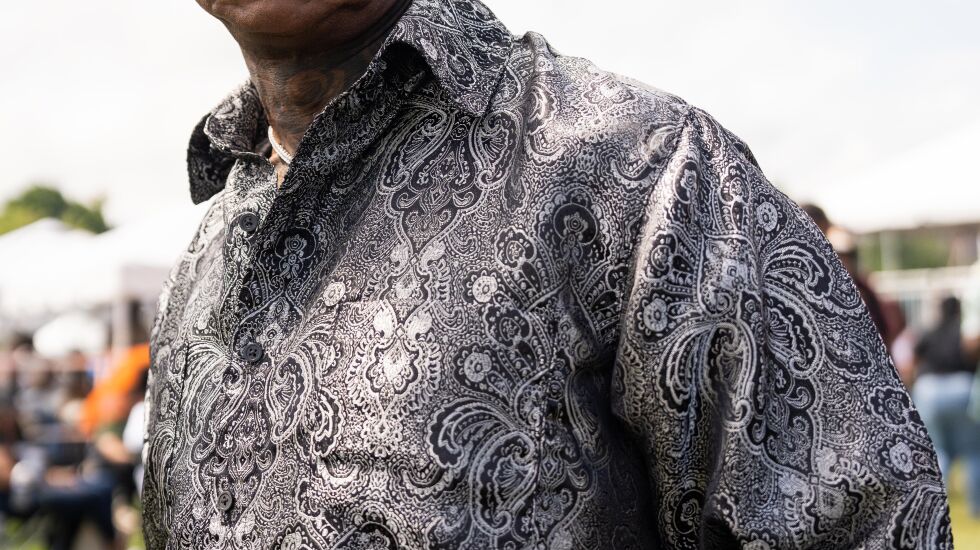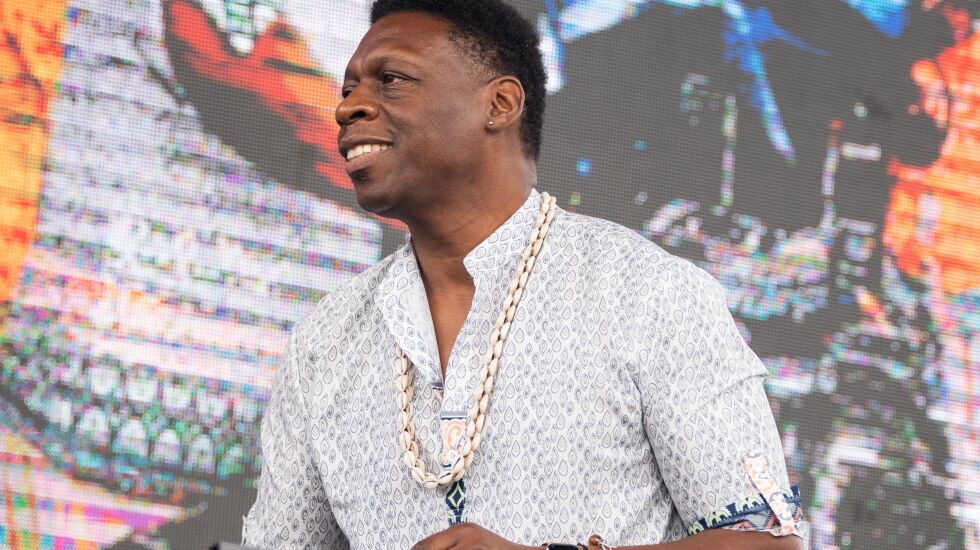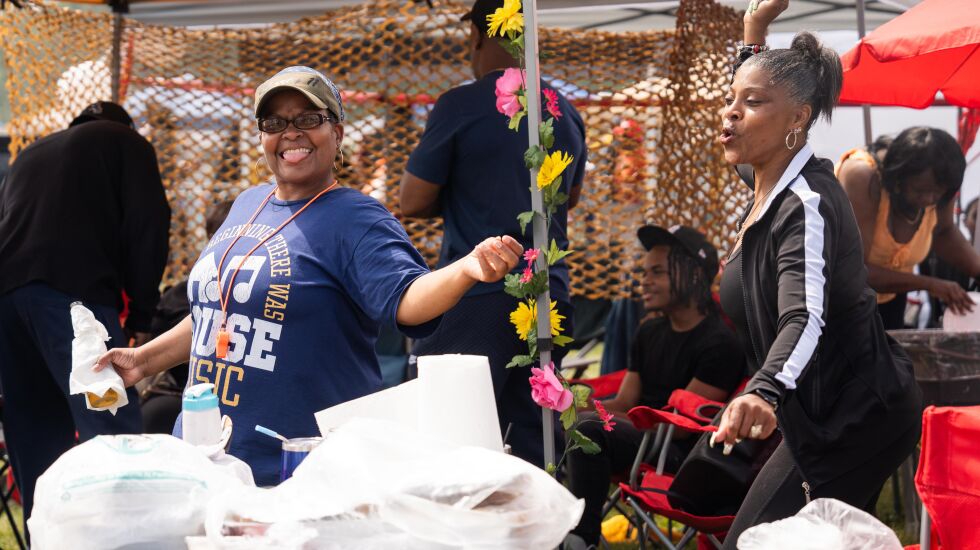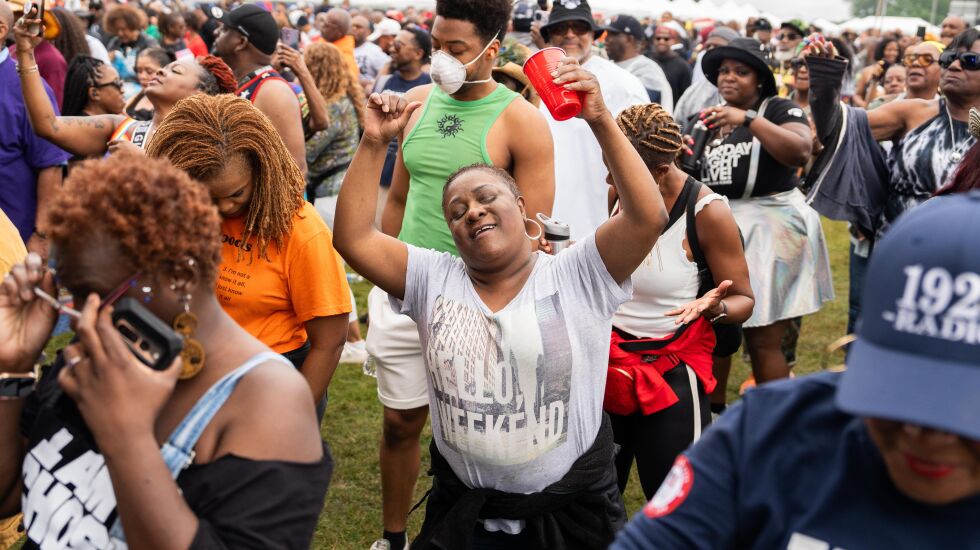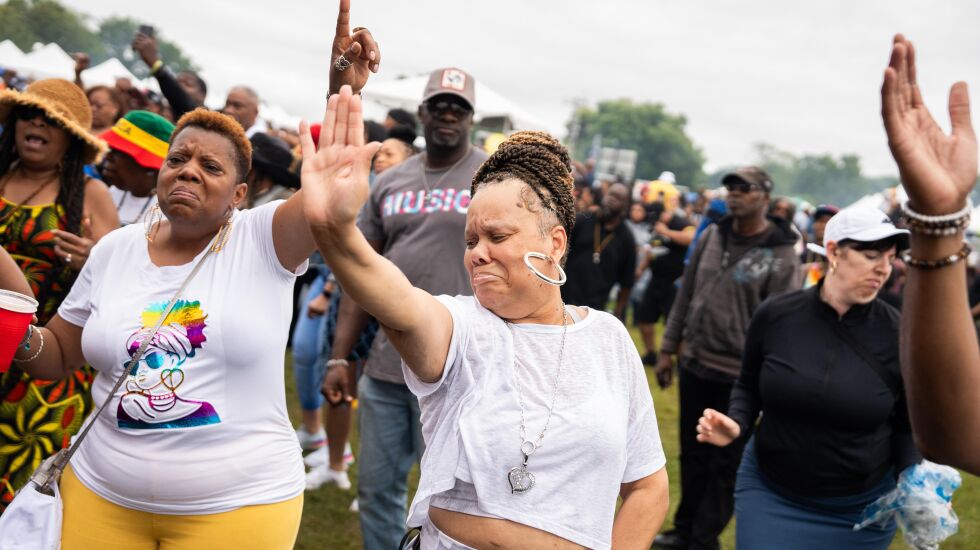
The Chosen Few picnic got off to a rainy start Saturday, but the rain couldn’t dampen the good vibes that brought thousands of house music fans to Jackson Park for the annual celebration of the genre that was born in Chicago.
As skies cleared, hundreds of grills placed under even more tents kept the festival true to its picnic name and its roots as an actual family reunion.
Desiree Taylor, 47, from Baltimore, came to Chicago for the first time with eight friends who have made a tradition of traveling to house music festivals every year.
What draws them, she said, is the “funkier” and “more soulful” approach of house music, which she said “takes you over. You can feel it deeper. You feel like you can be free. You can just be yourself and not feel like you have to perform a certain way.
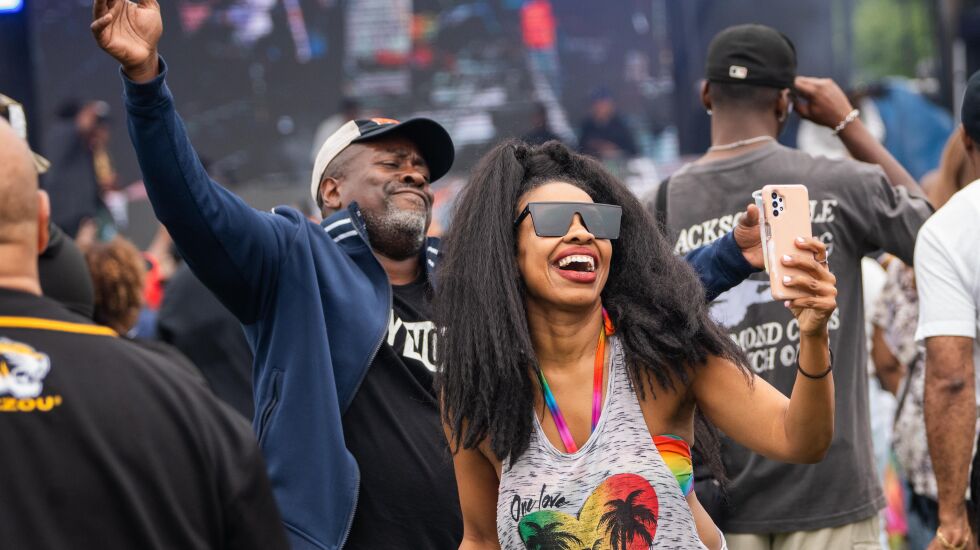
“We could stay out here all day and all night. It’s the energy, it’s the vibe, it’s the look in everybody’s eyes. We all don’t know each other, but we look at each other’s eyes, and we know each other.”
For others, it was a pilgrimage, bringing old house heads back to where it started.
George “Mikey” James, a former South Sider who moved to Atlanta in 1996, said he used to attend the festival in its early days, when it took place behind the Museum of Science and Industry. The self-described “deep house head” remembers going to parties at the Warehouse, the birthplace of house music, which was recently granted landmark designation by the city.
“The music is spiritual,” James said. “It takes us back to times we really enjoyed, memories we created, that make all this seem like a dream come true.”
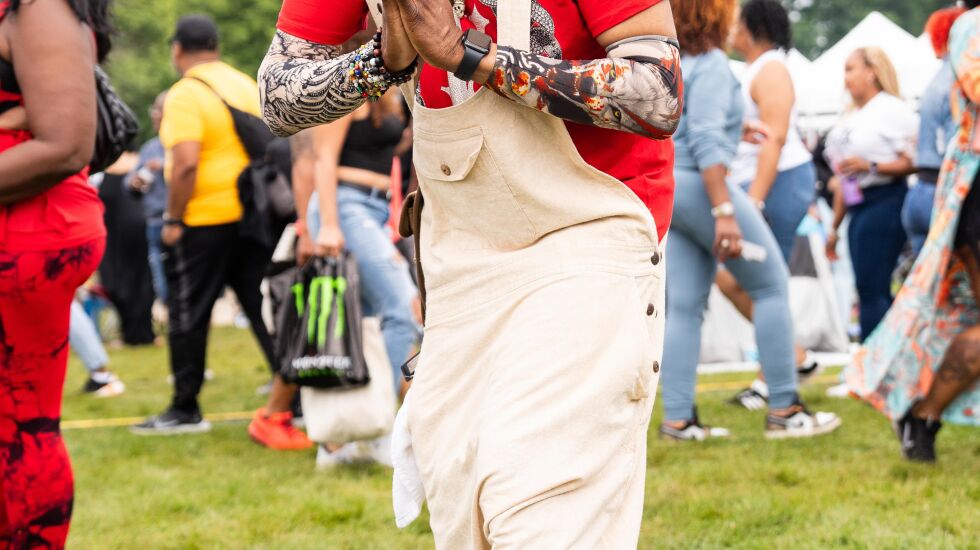
Derrick Rice, 57, a Georgia resident who grew up in Chicago, happened to be in the city Saturday and said he couldn’t miss the festival as a former “young guy who’d sneak in” to house parties to watch DJs when he was in his teens.
Rice said not much has changed since house music’s early days. He said he felt the same energy at Jackson Park that he felt in the garages and basements where he once went for house music shows.
One feeling is different, though, Rice said: House music’s queer community — which was often limited to those underground party spaces — can celebrate the genre much more freely.
“This is not new to anybody out here who’s from Chicago,” Rice said. “This is what we do.”
Still, he said, for people in the LGBTQ+ community “to be able to move from having to go to a garage to party to being wide open at the largest house party in probably the country is a good thing.”
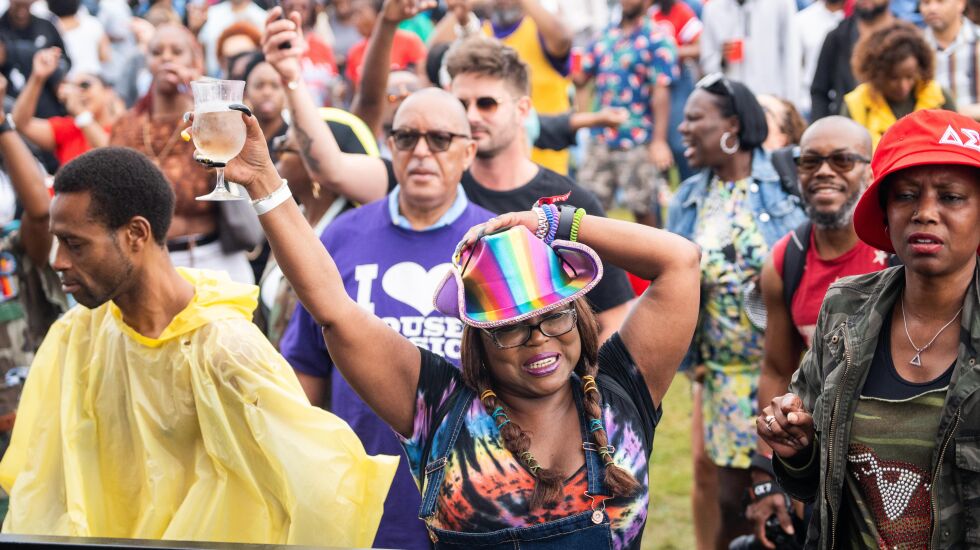
Dee Jay Alicia, a Chicago house music DJ, attended the festival ahead of her after-party performance at The Loft in Lincoln Park. As she walked through the crowd, people came up to greet and hug her.
“In this community, we’re really tightknit,” she said. “We’re just connected.”
The DJ said she remembered being in the front row at the festival in 2011 and being inspired to push on by DJ Jamie 3:26’s set despite some pushback she’d faced as a young, female DJ.
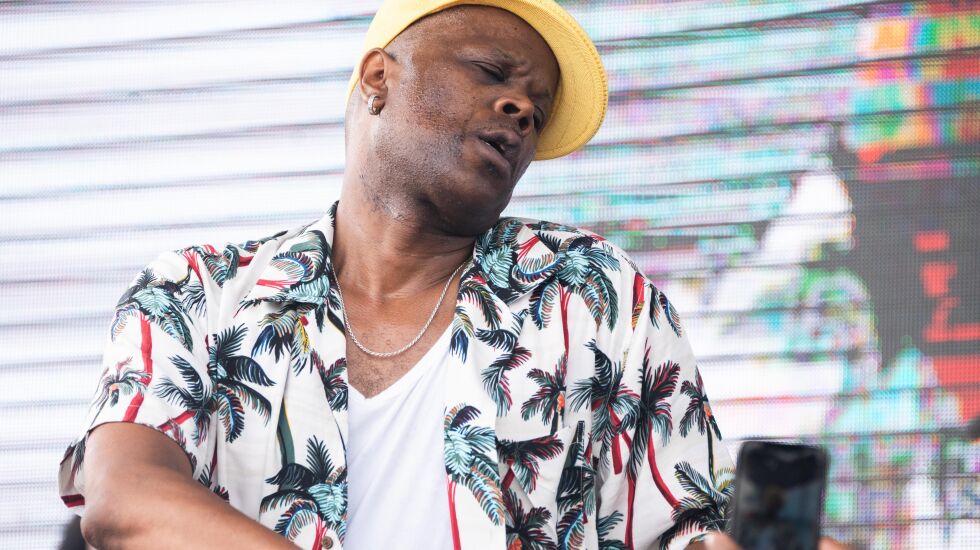
“I was standing in front of that stage, not knowing in four years I’d be on that stage,” Alicia said.
In 2016, she took the stage at the festival for the first time — a “dream come true” — and looked out at the people who had helped her get there.
“When I looked out in the audience, it was like a timeline of my evolution in house music,” she said. “I could see the people I became friends with along the way. They were all there to support me and cheer me on. It was unforgettable.”
